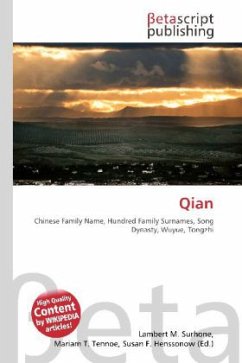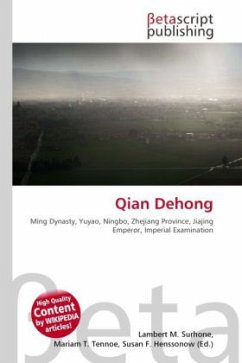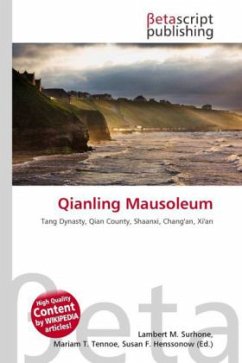Please note that the content of this book primarily consists of articles available from Wikipedia or other free sources online. Qian (simplified Chinese: ; traditional Chinese: ; pinyin: Qián; Wade-Giles: Ch''ian²; Shanghainese: [ i]), also spelt Chien, Tsien, or rarely Zee, which means money, is a prominent Chinese family name. Today, it is ranked 92nd in terms of population in mainland China. Despite the rarity of this last name among the Chinese population today, there has been a number of notable Qians in the Chinese history. As a result, Qian was listed at the second place in the Hundred Family Surnames. At the time that that list was compiled in the Song Dynasty, the Qians were the royal family in the kingdom of Wuyue, and was regarded as second only to the Song Imperial Family. According to the Song Dynasty history book, the Tongzhi, the Qian surname descends from Zhuanxu, one of the legendary Five Emperors, via Pengzu, the founder of the Peng kingdom in modern-day Jiangsuduring the Shang dynasty. A Zhou dynasty official, Fu, was a descendent of Pengzu and served in the royal Treasury, the Qianfu ("Money Office"). His descendants adopted the surname "Qian", literally "money", from his title.
Bitte wählen Sie Ihr Anliegen aus.
Rechnungen
Retourenschein anfordern
Bestellstatus
Storno








